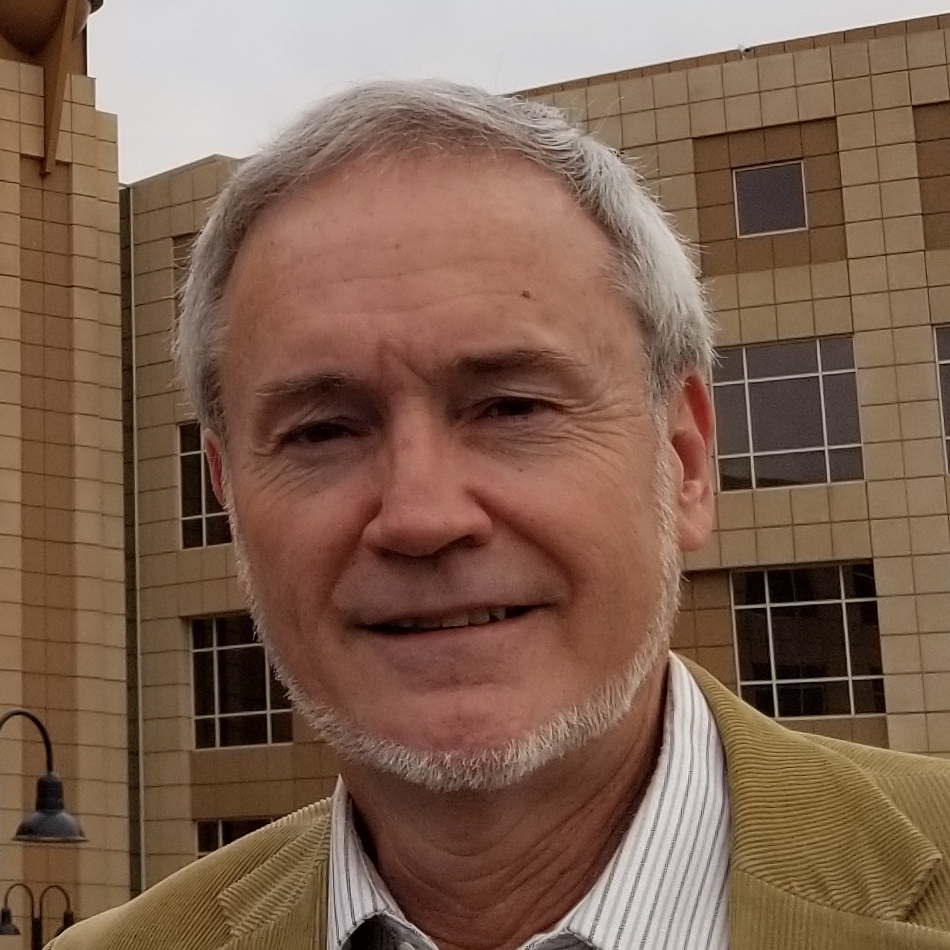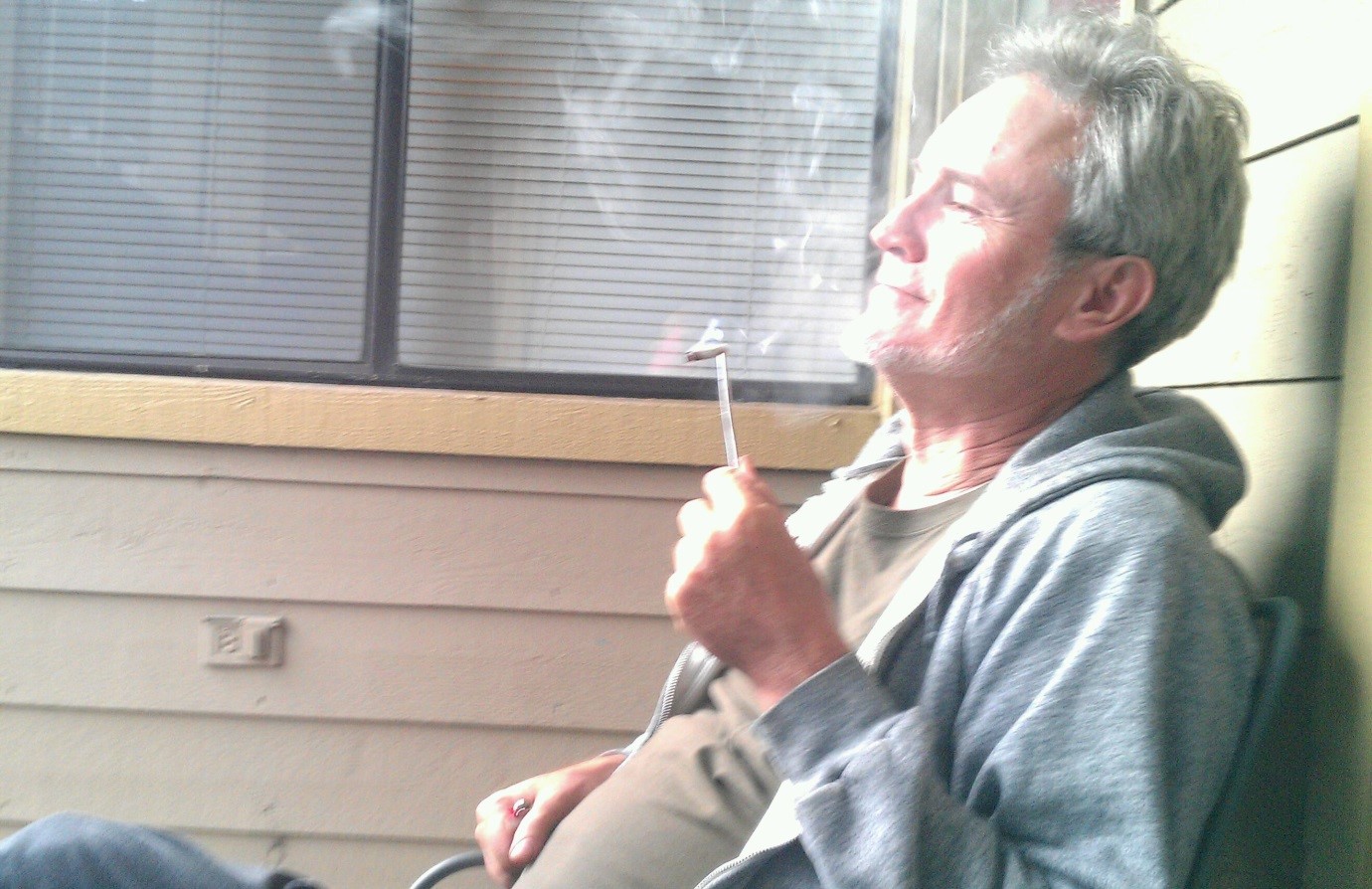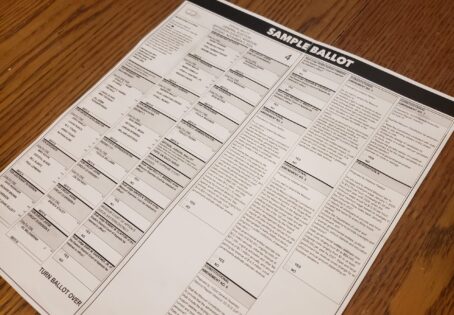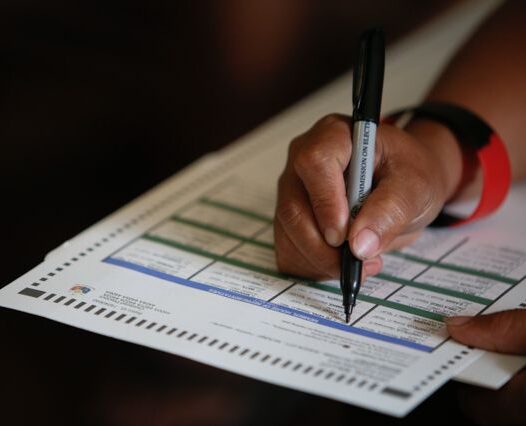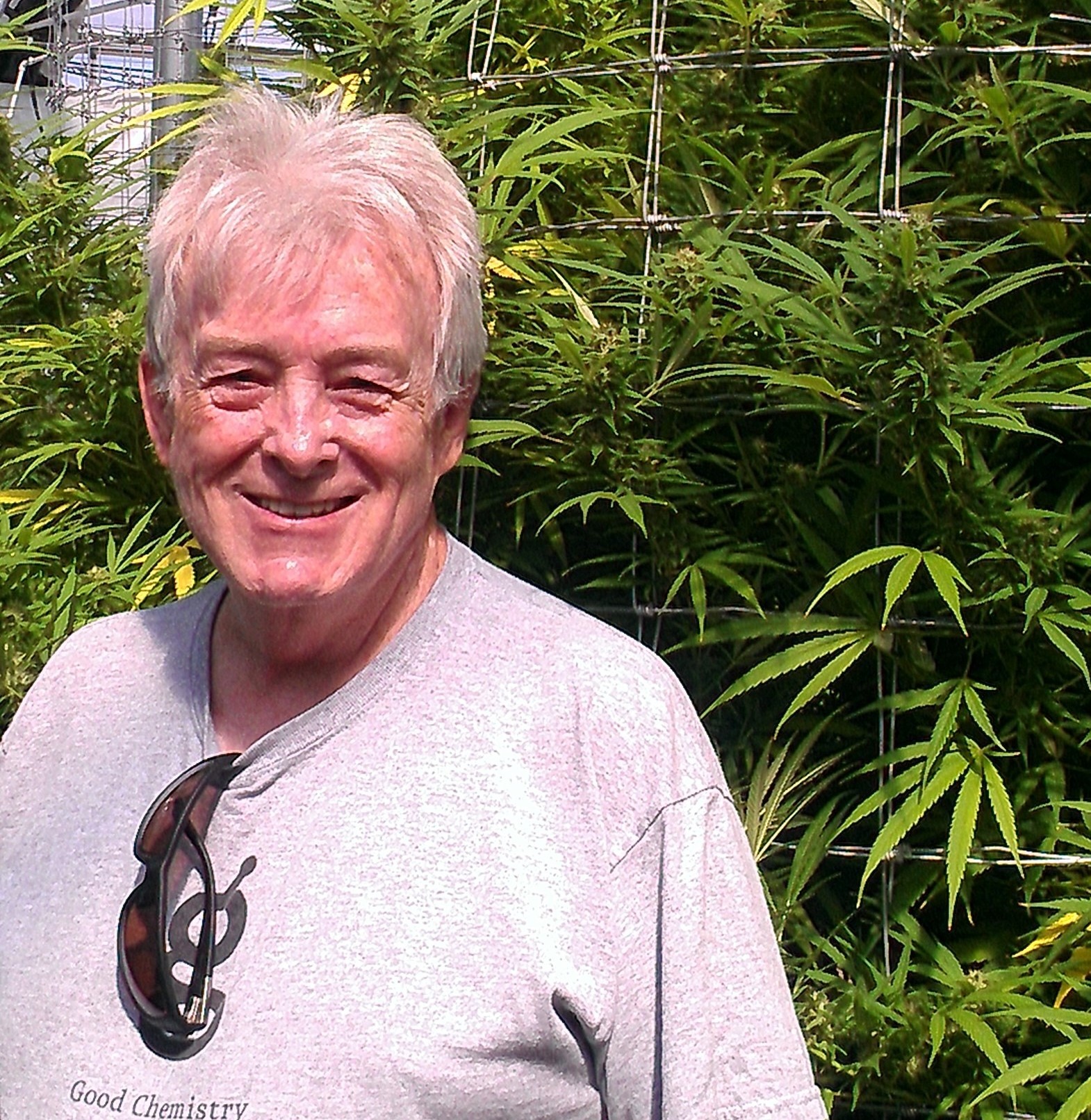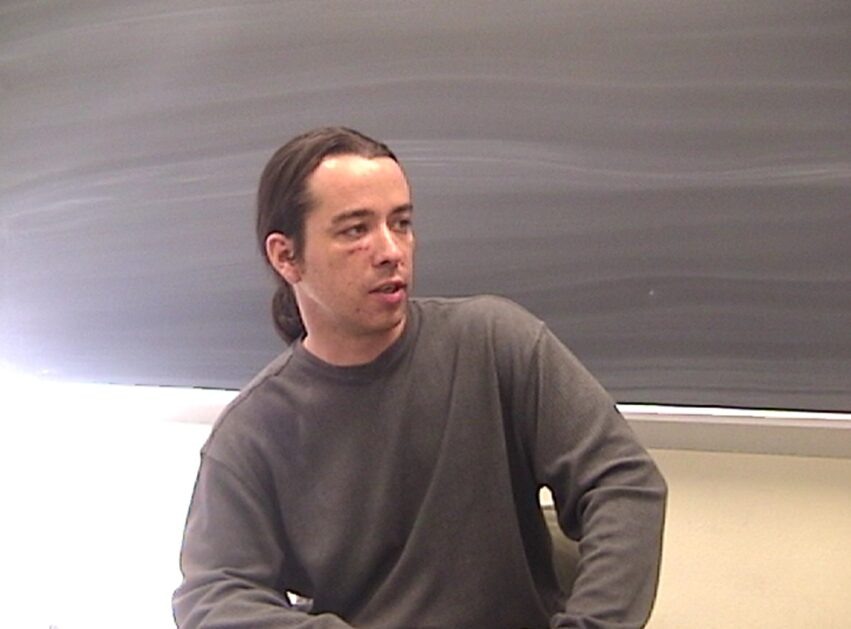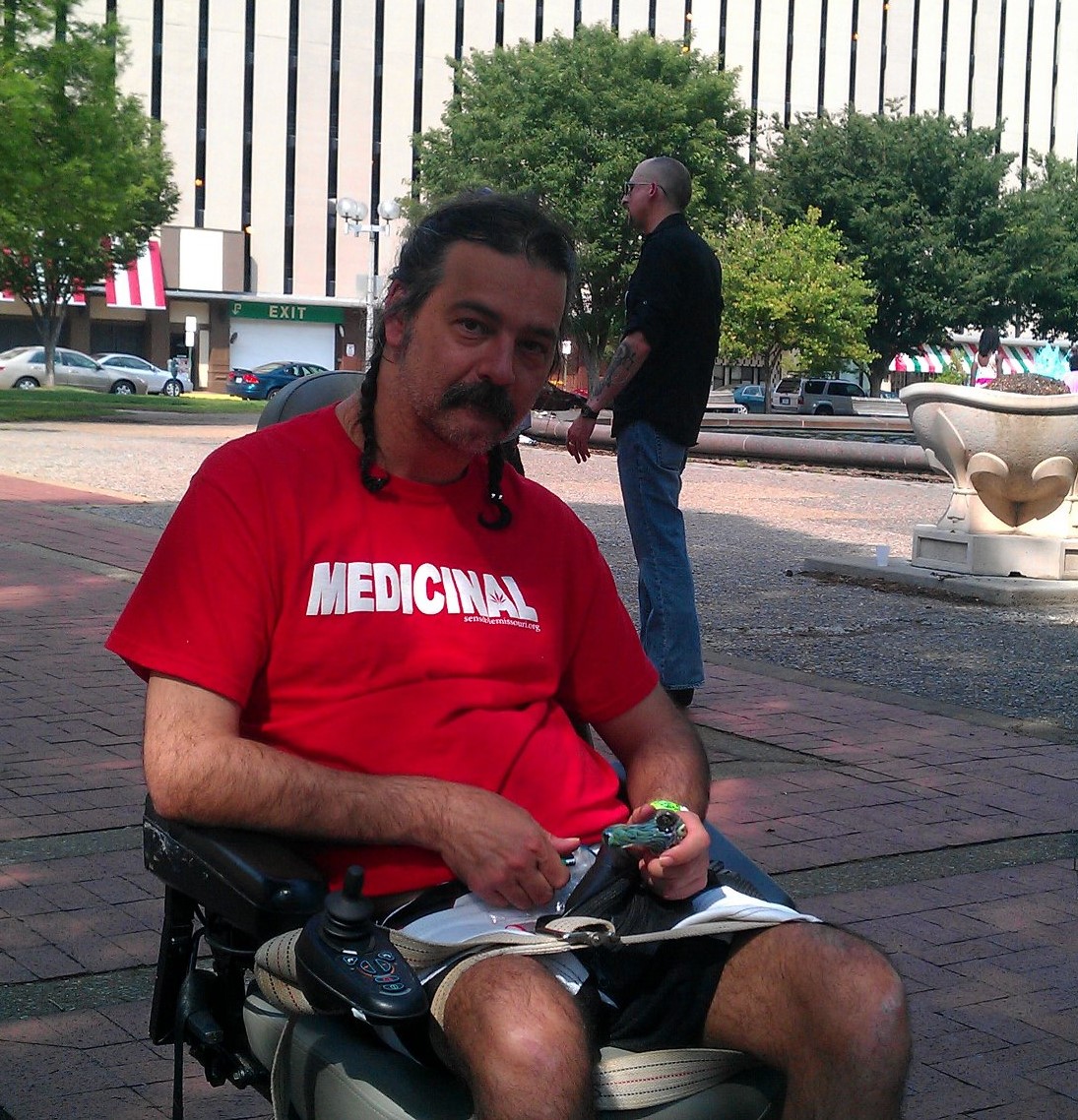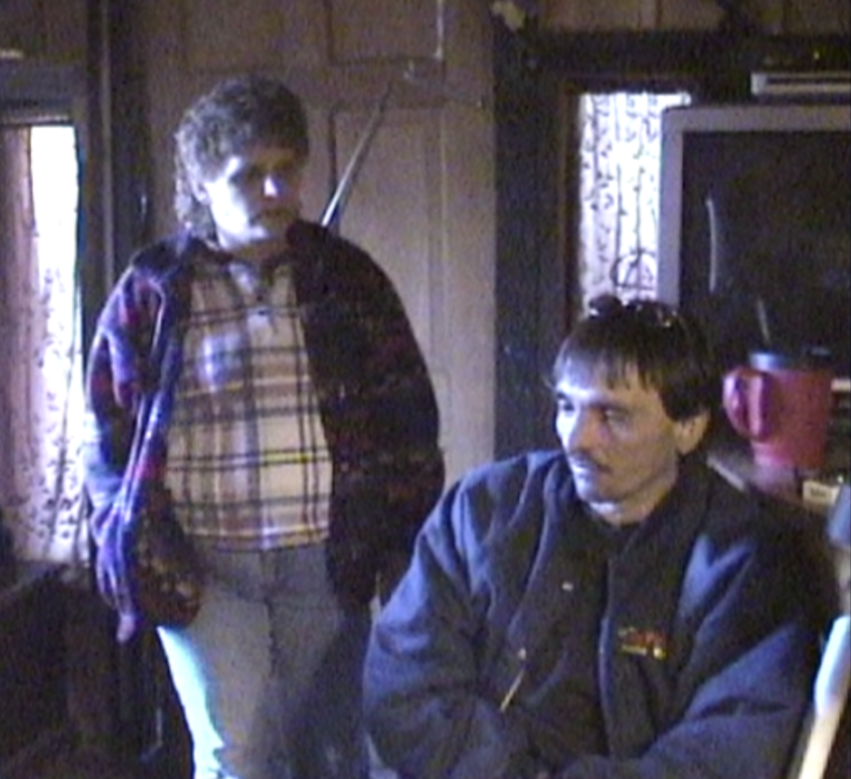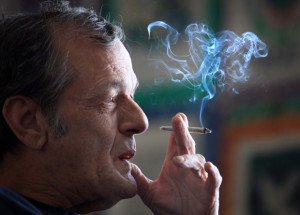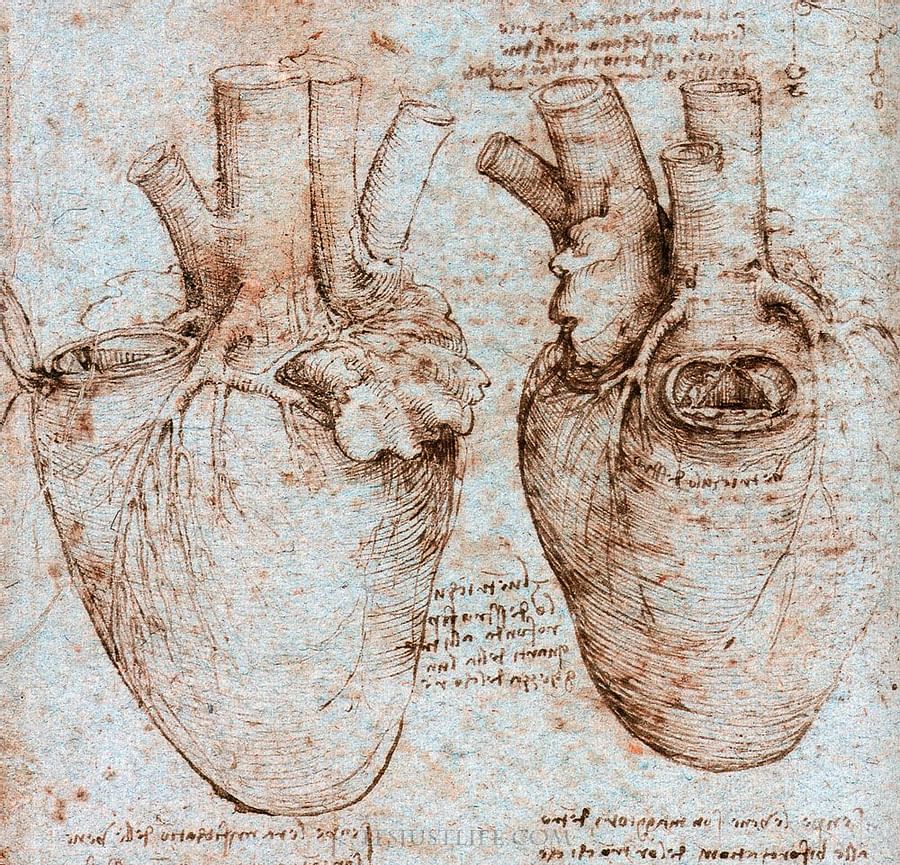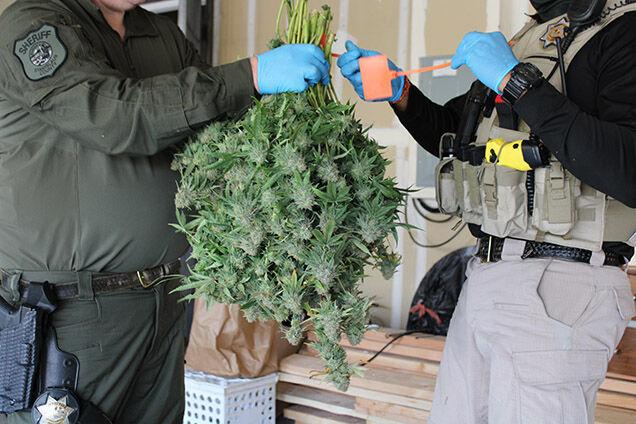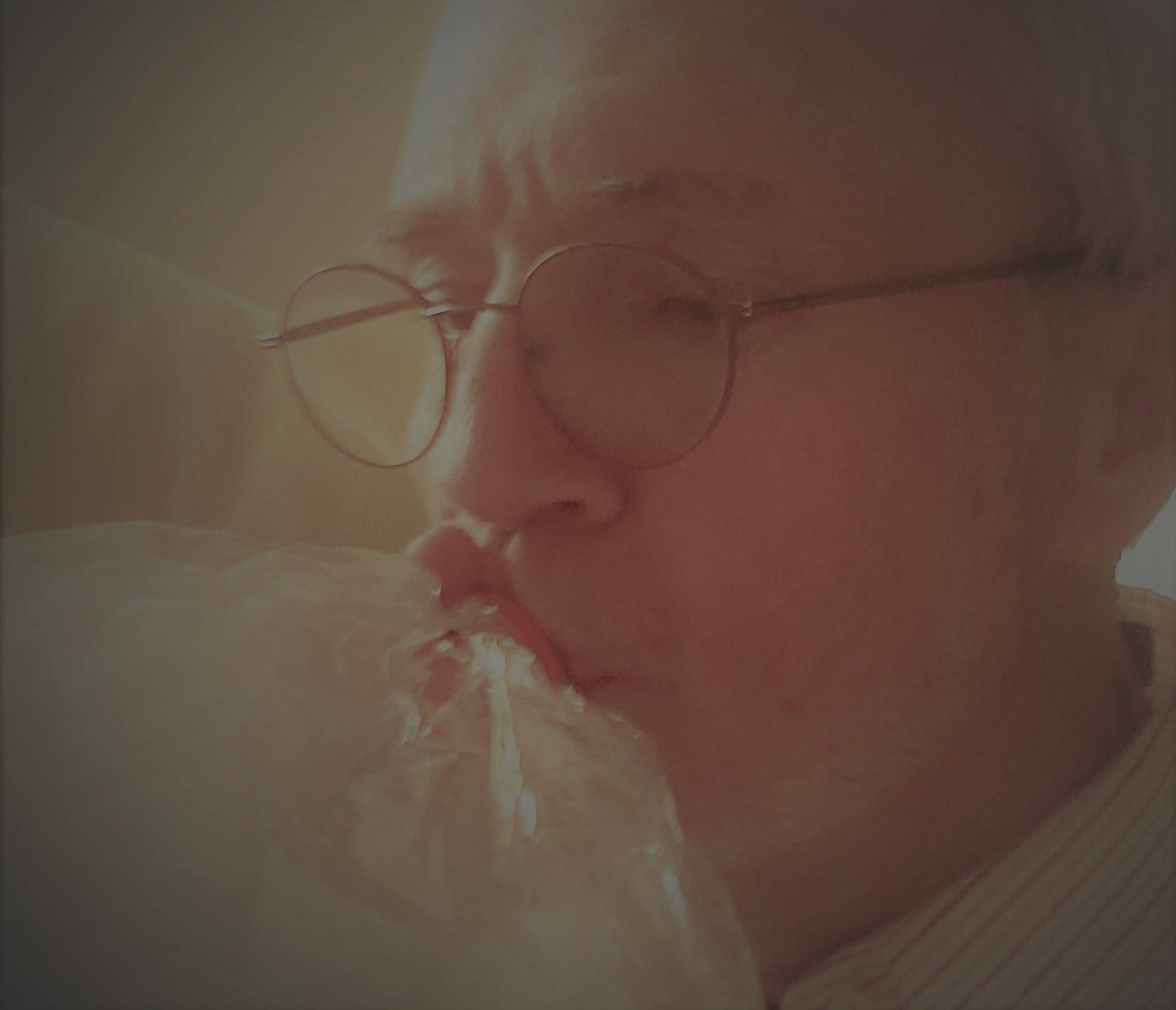This article was originally published in Facebook in December of 2013.
Sitting here on the porch of my apartment; if it’s clear and I look hard, I can see the mountains. They remind me where I am.
I draw a joint from my cigarette case. Light it. I draw in that first comforting puff. As I exhale, I watch the smoke roll through the air toward open sky. No fear. No paranoia. Just peace.
I reflect back a few short months. I couldn’t do this back at my apartment in Missouri. But here, in this foreign place, apart from most everyone I know, I’m free. …well, sort of.
Like so many I have met here, I’m not from Colorado. Maintaining a running consensus, I have asked every sales clerk, waiter, and casual acquaintances where they’re from. The majority say somewhere else.
Unlike me, what brought most of them here was really more economical or perhaps social. Whichever, they had a choice – and a support system – either here or back home.
I, on the other hand – really didn’t have a choice – nor do the thousands of patients who are flocking here from all over the country. Ours is a different motivation. To remain in a state where the only effective treatment for one’s illness is illegal would mean more hospitals, more pills, more misery…even death for some of us.
Incarceration? Yeah, that happens to the sick, too, if they get caught. We’re a pretty easy target most places.
For so many cannabis patients scattered out across this country, Colorado is perceived to be a Mecca. They don’t really visualize much more than that. It’s more a dream, really, than reality.
The thought of doing just what I am doing now, openly smoking cannabis, is thought to be sheer liberation. I know. That’s what I would be thinking, if I were still back in my little apartment in Kirkwood, Missouri.
I remember the wet towels covering the door cracks and the cans of air freshener. The cautious peeks out the window at the slightest sound. The fear I had each and every day that someone might spot me medicating, or smell my cannabis, or worse, discover my little garden in the back room that kept me alive.
For those living in most parts of this country, few know little more than what they see on the evening news…maybe CNN, even less, the Internet. In the hundreds that I have interviewed, thousands that I have spoken to across this country, few had even heard of the Endocannabinoid System or its essential role in homeostasis.
All they knew was that cannabis relieved the symptoms of their illness. Their conventional treatments offered only more suffering.
It’s hard to maintain perspective when you’re sick and you’re living in an “illegal” state. It doesn’t matter if it’s you or another family member. Chronic and terminal illness affects the whole family. Life without options is life without hope. When faced with the alternative, even a faint glimmer can seem reasonable.
How excruciating it is for those who learn that their illness has a remedy, and yet they are forbidden by geography to appreciate the treatment.
For me, all of that is a not too distant memory. The thought of going to jail for consuming the one thing that frees me from my migraines and seizures seems so ridiculously insane, now. And so it should. But do I feel free? Obviously more so than many. Though we continue in obvious poverty, we don’t want for a warm place or food to eat.
I see those less fortunate every week in downtown Denver. They line up by the hundreds. I have seen whole families cluster in store doorways for warmth.
I asked a local who used to work with the homeless, “What happens to the vulnerable ones when winter comes?” His answer, “They die.”
Honestly, I don’t know how many of these unfortunate souls are cannabis patients. I do know they all have an endocannabinoid system. I worry, with each email, each phone call from yet another desperate patient, spouse, or parent. I try to tell them that they should have a support group and the finances in place before even considering a move out here. They don’t always listen.
The fortunate ones come while they still have money, or can still work. The not-so-fortunate – end up like I did back in ’06 – sick, broke, and with no medicine. A severe respiratory infection separated me from my sponsoring family and all my earthly possessions. I was fortunate. I landed in a run-down motel. I survived on saltines and Gatorade for weeks, but I survived. Others have fared much worse.
Unless you actually live here, you can’t understand what this form of “legalization” is really like. Though the cannabis culture here is granted considerable leeway (depending on where you live, your age, your race), patients are still forced to adhere to mandatory guidelines regarding their medicine that are both contrived and bigoted.
Vague mandates in state law have given city and county governments control over the way the industry operates. It’s said, “the devil is in the details;” so it is with cannabis law. Though motivated by concerns over adult use, the pushback almost always adversely affects the patient. The policy writers call these “baby steps”. What they don’t tell you is that correcting their oversights will be extremely difficult and ridiculously costly.
So, legalization is not really legal here in Colorado. You can still go to jail, even prison for a cannabis infraction. Truth is, you’re far more likely to be fined or have your world turned upside down by a DUI. For someone battling a life-threatening illness, that could be devastating enough. Since cannabinoid metabolites remain in the body for some time, new ridiculous DUI laws threaten to strip all cannabis patients of their driving privileges.
With legalization in some form or another coming to the rest of the country, and the world for that matter, it would seem best just to wait a few more years for the rest of the states to catch up and hopefully improve on the policy mistakes that have been witnessed, but if you’re chronically ill, or worse, terminal, time is an important element. So we’re seeing patients, just like me, making their way here; some whole families.
CPN Institute is doing what it can. Mostly, trying to work between patients and existing services, but we’re spread thin, physically and financially. Our hope is to eventually establish temporary living facilities where patients, even families could stay while they heal. Others have similar ambitions.
We’re seeing so many sick people seeking refuge, and we still haven’t experienced the rush that will come when the retail stores open. The floodgate will truly open then, when patients can buy medicine without proof of residency. TSA’s and highway checkpoints will have a field day for sure, as patients make their way back across the border.
But neither patients nor the dispensaries know what is coming. In the words of one wise dispensary owner, “There will never be enough cannabis to meet the need.”
I have had so many tell me since we moved out here, “You’re living the dream, now, aren’t you?” They seem so shocked when I shake my head.
No…not really.
Yes, it is good to have legal access to this amazing medicine, and to have a reasonable amount of confidence that I will not be harassed while I use it, but there IS more to life than just cannabis. I require adequate food and housing. Though it may not be a requirement – a life, family, friends – fellowship. Of course, it would also be nice if I could actually afford the medicine I risked so much for and came halfway across the country to embrace.
Health and happiness, or at least the right to pursue them – that’s really all any of us want.
“Cannabis is nontoxic. Cannabis is food. Cannabis is the single most important medicine of the 21st century.”
